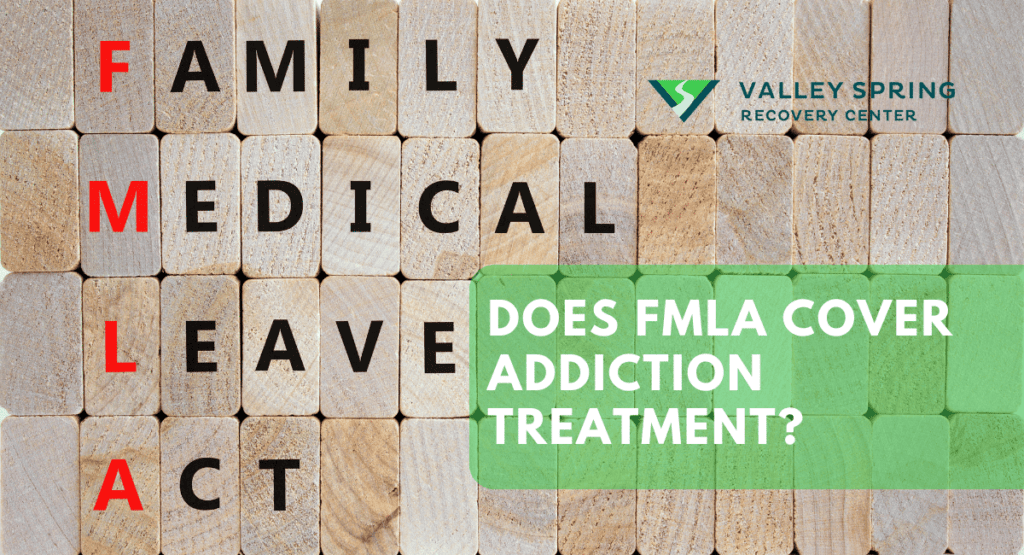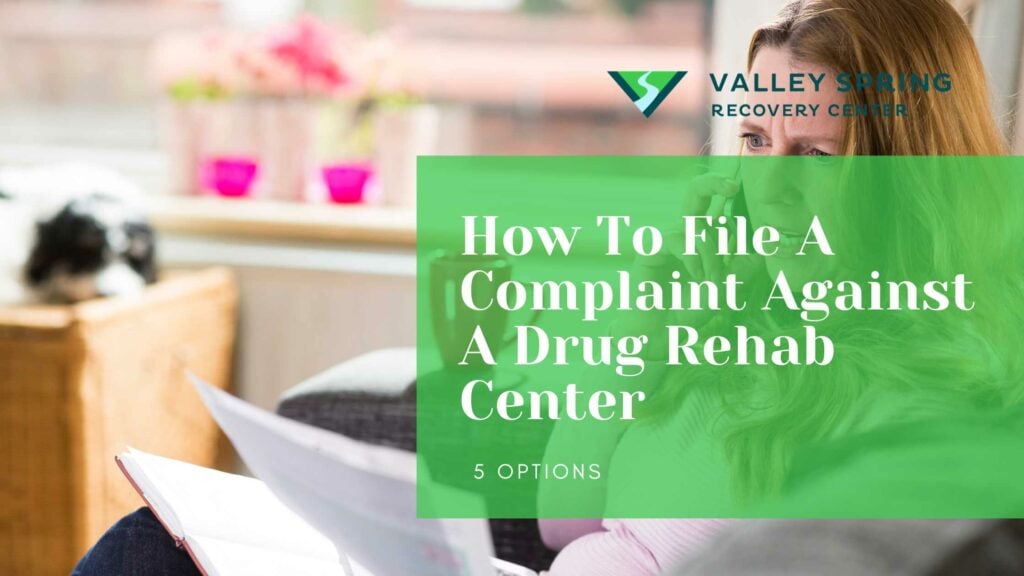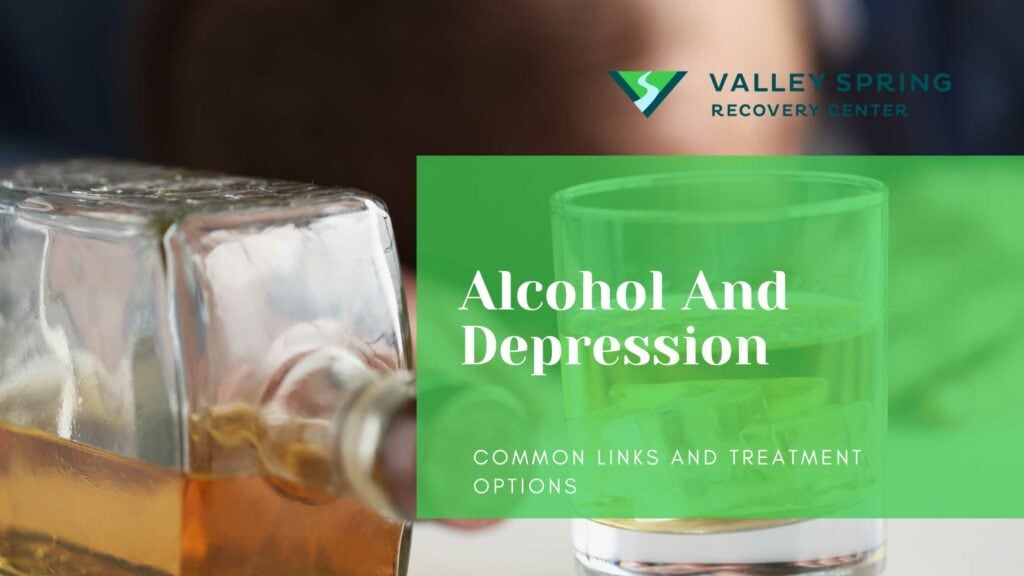The Family and Medical Leave Act (FMLA) is a federal law in the United States that provides eligible employees with job-protected leave for certain medical and family-related reasons. It grants individuals the right to take time off from work to address their health conditions or care for their family members without fear of losing their jobs.
While FMLA is widely known for its coverage of medical conditions, there is often uncertainty regarding whether addiction treatment is included under its provisions.
We will delve into the key aspects of FMLA, examine the criteria for eligibility, and analyze how addiction treatment fits within the scope of the law. By understanding the potential coverage and protections offered by FMLA, individuals, and their loved ones can make informed decisions about seeking addiction treatment while safeguarding their employment rights.
What is FMLA?
The Family and Medical Leave Act (FMLA) is a federal law enacted in the United States by President Clinton in 1993 to provide eligible employees with job-protected leave for specific medical and family-related reasons. FMLA allows employees to take time off from work for certain situations without fear of losing their jobs or facing adverse employment actions.
FMLA provides leave protection, meaning that eligible employees can take time off without the risk of losing their jobs. Additionally, FMLA requires that employers maintain an employee’s health benefits during the leave period.
FMLA is administered and enforced by the U.S. Department of Labor’s Wage and Hour Division (WHD). While FMLA provides essential protections, it’s crucial to understand that the leave is generally unpaid, although employees may have the option to use accrued paid leave or benefits during their FMLA leave.
To be eligible for FMLA coverage, employees must meet specific criteria, such as working for a covered employer, having worked a minimum number of hours in the preceding year, and working at a location where the employer has a certain number of employees.
Is Addiction Treatment and Rehab Covered by FMLA?

Addiction is considered a serious health condition, and if an individual meets the eligibility criteria and the treatment meets the requirements of FMLA, they may be eligible to take leave for addiction treatment without fear of losing their job.
To qualify for FMLA coverage for addiction treatment, the following conditions generally need to be met:
1. Eligibility criteria
The individual must meet the FMLA eligibility criteria, including working for a covered employer, having worked for the employer for at least 12 months, and having worked at least 1,250 hours in the preceding 12-month period.
2. Medical certification
A healthcare provider must certify that the individual has a serious health condition, which includes addiction. The certification should provide information about the nature and duration of the condition and the need for the individual to take leave for treatment.
3. Treatment provider involvement
The individual must be actively engaged in a recognized addiction treatment program. This can include inpatient rehabilitation, outpatient counseling, or other forms of treatment that are supervised or administered by a healthcare provider.
4. Duration of leave
FMLA generally allows eligible employees to take up to 12 weeks of unpaid leave within 12 months. The duration of leave for addiction treatment would depend on the specific circumstances and the healthcare provider’s recommendation.
Individual circumstances may vary, and it’s advisable for individuals seeking addiction treatment to consult with their employer’s human resources department or an employment law attorney to understand their specific rights and options under FMLA. Additionally, employees may be required to comply with their employer’s policies and procedures for requesting FMLA leave.
Given the sensitive nature of addiction and the potential impact on an individual’s employment, understanding the coverage and protections provided by FMLA can be crucial in seeking addiction treatment while safeguarding job security.
What are the Eligibility Criteria for Employees to Qualify for FMLA?

To qualify for the protections and benefits provided by the Family and Medical Leave Act (FMLA) in the United States, employees must meet certain eligibility criteria. These criteria include:
1. Employer coverage
FMLA applies to private-sector employers with 50 or more employees, public agencies (such as government offices and schools), and elementary and secondary schools. To be eligible, employees must work for a covered employer.
2. Length of employment
To be eligible for FMLA, employees must have worked for their employer for at least 12 months. These 12 months of employment do not have to be consecutive, but they must have occurred within the past seven years.
3. Hours worked
Eligible employees must have worked at least 1,250 hours during the 12 months immediately preceding the start of their FMLA leave. This requirement averages to about 24 hours per week for the year.
4. Worksite location
Employees are eligible for FMLA if they work at a location where their employer has 50 or more employees within a 75-mile radius. This criterion ensures that FMLA coverage is provided in locations where there is a significant workforce.
5. Reasons for leave
Employees must request FMLA leave for one of the qualifying reasons outlined by the law. These include the employee’s serious health condition, the care of a family member with a serious health condition, and parental leave for the birth, adoption, or foster care placement of a child.
It’s important to note that meeting these eligibility criteria does not automatically grant FMLA leave. Employees still need to follow their employer’s established procedures for requesting and documenting the leave.
If employees meet the eligibility requirements and their employer is subject to FMLA, they can take advantage of the protections and benefits provided by the law to manage their health conditions or care for their family members without risking their job security.
| Criteria | Eligibility Requirements |
|---|---|
| Employment Duration | Must have worked for the employer for at least 12 months (not necessarily consecutively). |
| Hours Worked | Must have worked at least 1,250 hours during the 12 months prior to the start of FMLA leave. |
| Employer Size | Employer must have at least 50 employees within a 75-mile radius of the workplace. |
| Reason for Leave | Leave must be for one of the FMLA-protected reasons: personal serious health condition, to care for a family member with a serious health condition, bonding with a new child, or certain needs arising from a family member’s military service. |
| Documentation | May be required to provide medical certification or other documentation to support the need for leave. |
| Job Level/Position | All employees, regardless of their job level or position, are eligible if they meet other criteria. |
| Previous FMLA Leave | If previously taken FMLA leave, it may affect the current year’s entitlement (as FMLA leave is capped at 12 weeks per 12-month period). |
| Work Location | Employee’s primary workplace must have 50 or more employees in a 75-mile radius, even if the employer is large. |
| Public vs Private Sector Employment | Applies to all public agencies, all public and private elementary and secondary schools, and companies with 50 or more employees. |
| Nature of Health Condition | The health condition must be a serious one that necessitates either inpatient care or ongoing treatment. |
| Family Relationship | Care must be for an immediate family member (spouse, child, or parent) with a serious health condition, or for the employee’s own health condition. |
Please note that this table provides a general overview, and specific cases may require a more detailed examination of FMLA regulations. Additionally, state laws might offer different or additional protections. It’s always a good idea to consult with a Human Resources professional or legal expert for personalized advice.
What are the requirements for addiction treatment to be considered a serious health condition under FMLA?
To be considered a serious health condition under the Family and Medical Leave Act, addiction treatment must meet certain requirements. FMLA defines a serious health condition as an illness, injury, impairment, or physical or mental condition that involves:
1. Inpatient care
Addiction treatment may be considered a serious health condition if it requires an individual to receive inpatient care at a hospital, residential treatment facility, or other medical facility. This can include medically supervised detoxification or rehabilitation programs.
2. Continuing treatment
Addiction treatment may qualify as a serious health condition if it involves continuing treatment by a healthcare provider. This can include regular visits to a healthcare professional for outpatient counseling, therapy, or medication management related to addiction treatment.
3. Incapacity and treatment
If addiction treatment causes an individual to be unable to perform their job functions or daily activities, it can be considered a serious health condition. This may involve severe withdrawal symptoms, side effects of medication, or the need for ongoing rest or medical monitoring.
4. Periodic treatment
Addiction treatment that requires periodic visits to a healthcare provider can be considered a serious health condition. This can include follow-up appointments, therapy sessions, or check-ins to monitor progress and adjust treatment plans.
| Requirement | Details |
|---|---|
| Medical Certification | Treatment must involve inpatient care in a hospital or residential medical care facility, or continuing treatment by a healthcare provider. |
| Inpatient Care | Inpatient care means an overnight stay in a hospital, hospice, or residential medical care facility, including any period of incapacity or subsequent treatment in connection with such inpatient care. |
| Continuing Treatment | Treatment must include examinations, evaluations, or actual treatment by a healthcare provider; this can include prescriptions for medication, therapy sessions, or follow-up appointments. |
| Incapacity and Treatment | Incapacity due to addiction may include an inability to work, attend school, or perform regular daily activities. Treatment for addiction often includes a period of incapacity of more than three consecutive calendar days with subsequent treatment or supervision. |
| Substance Abuse Treatment | Treatment for substance abuse may be covered, but absence because of the employee’s use of the substance is not protected. |
| Healthcare Provider Involvement | Treatment must be under the supervision of a healthcare provider or by a provider of healthcare services on referral by a healthcare provider. |
| Chronic Conditions | Conditions requiring periodic visits for treatment by a healthcare provider, or by a nurse or physician’s assistant under direct supervision of the provider. |
| Pregnancy or Prenatal Care | Any period of incapacity due to pregnancy, or for prenatal care, can also constitute a serious health condition under FMLA. |
| Documentation and Notice Requirements | Employers can require certification from a healthcare provider, but employees must be given at least 15 calendar days to obtain it. The employer may require a second opinion, and periodic recertification may also be required. |
| Confidentiality of Medical Records | Employers must maintain confidentiality of medical records and information related to FMLA leave for addiction treatment. |
| Intermittent Leave | FMLA leave can be taken intermittently when medically necessary. For planned medical treatment, the employee must consult with the employer to schedule treatment so as not to unduly disrupt the employer’s operations. |
Are there Any Limitations or Restrictions on the Duration of FMLA for Addiction Treatment?
There are certain limitations and restrictions to be aware of regarding the duration of FMLA for addiction treatment:
1. 12-week limit
The maximum duration of FMLA leave for addiction treatment is 12 weeks within 12 months. This means that employees cannot exceed a total of 12 weeks of FMLA leave for addiction treatment during a rolling 12-month period.
2. Shared leave
If both spouses or partners work for the same employer and are eligible for FMLA, they may be limited to a combined total of 12 weeks of leave for certain family-related reasons, including addiction treatment. This is known as the “spouse/partner limitation” and applies when both individuals are taking FMLA leave for the birth, adoption, or foster care placement of a child or to care for a parent with a serious health condition.
3. Intermittent or reduced schedule leave
FMLA allows eligible employees to take leave for addiction treatment on an intermittent or reduced schedule basis when medically necessary. This means that an employee may take leave in smaller increments of time or work a reduced schedule to accommodate treatment needs. However, the total duration of intermittent or reduced schedule leave for addiction treatment must still fall within the 12-week limit.
4. State-specific provisions
Some states may have their own family and medical leave laws that provide additional or different provisions than the federal FMLA. These state laws may offer longer durations of leave or provide other considerations for addiction treatment. It’s important to be familiar with both federal and state laws to understand the applicable provisions.
Understanding the duration limitations of FMLA for addiction treatment helps you plan your treatment and leave accordingly while staying within the legal framework and job protection provided by the law.
Can an Employer Deny FMLA for Addiction if the Employee Has Taken FMLA Leave for Other Reasons?
No, an employer cannot deny FMLA leave for addiction treatment solely because the employee has already taken FMLA leave for another reason. Each qualifying reason for FMLA leave is treated separately, and an employee’s previous use of FMLA leave for a different purpose does not disqualify them from taking FMLA leave for addiction treatment.
The FMLA does not limit the number of times an employee can take FMLA leave for different qualifying reasons, as long as the total amount of leave taken within 12 months does not exceed 12 weeks.
If an employer denies FMLA leave for addiction treatment based on an employee’s prior use of FMLA leave, it may be a violation of the employee’s rights under the law. In such cases, the employee may consider seeking guidance from the U.S. Department of Labor’s Wage and Hour Division or consulting with an employment law attorney to understand their options for addressing the denial and protecting their rights under FMLA.
What happens if an employee exceeds the 12-week duration for FMLA?
If an employee exceeds the 12-week duration of Family and Medical Leave Act (FMLA) leave within 12 months, their employer is generally not obligated to provide additional protected leave under FMLA.
Once the 12-week FMLA entitlement has been exhausted, the employer may consider the employee’s continued absence as a violation of company attendance policies or may treat it as an unpaid leave of absence subject to their policies and procedures.
Here are a few possible scenarios that may occur if an employee exceeds the 12-week duration of FMLA:
1. Job protection
The employee’s job may no longer be protected under FMLA. Once the 12-week FMLA entitlement has been exhausted, the employer may have the right to fill the position or take other employment actions, depending on their policies and applicable employment laws.
2. Unpaid leave
If the employer allows the employee to continue their absence beyond the 12-week FMLA period, it may be treated as an unpaid leave of absence. The terms and conditions of the unpaid leave, including its duration and any potential impact on benefits or seniority, will be subject to the employer’s policies and any applicable employment laws.
3. Termination
If the employee exceeds the 12-week FMLA duration and does not have additional leave entitlements under other laws or employer policies, the employer may choose to terminate the employee’s employment due to excessive absenteeism. However, employers should be cautious and ensure they comply with any applicable laws and consider any reasonable accommodation obligations that may arise under disability laws.
It’s important to note that while FMLA provides 12 weeks of protected leave, there may be other federal, state, or local laws that provide additional leave entitlements or protections, such as disability laws or state family and medical leave laws.
Employers should carefully review and comply with all applicable laws when making decisions regarding an employee’s leave duration and job status.
If you require additional leave beyond the 12-week FMLA period, communicate with your employer to explore potential options, such as reasonable accommodations or other leave entitlements that may be available under company policies or applicable laws. Consulting with an employment law attorney can also provide guidance regarding specific rights and obligations in such situations.
What Other Health Conditions Qualify as Serious Under FMLA?
In addition to addiction treatment, the Family and Medical Leave Act (FMLA) recognizes several other health conditions as serious and qualifying for protected leave. Some examples of health conditions that may qualify as serious under FMLA include:
- Chronic health conditions
- Cancer
- Serious mental health conditions
- Serious injuries
- Organ transplantation
- Pregnancy complications
Note that each case is evaluated individually, and the determination of whether a specific health condition qualifies as serious under FMLA depends on the circumstances and the guidance of healthcare professionals.
How Long Does FMLA last?
The Family and Medical Leave Act (FMLA) provides important protections for employees facing serious health conditions. FMLA allows eligible employees to take up to 12 weeks of unpaid, job-protected leave within 12 months for qualifying reasons. To establish eligibility, employees must meet certain criteria, such as having worked for the employer for at least 12 months and having worked a specified number of hours.
While FMLA does not provide an exhaustive list of health conditions that qualify as serious, it recognizes various types of conditions, including chronic illnesses, cancer, mental health conditions, serious injuries, organ transplantation, and pregnancy complications.
Sources
Ben Fisher
All author postsShare This Post










